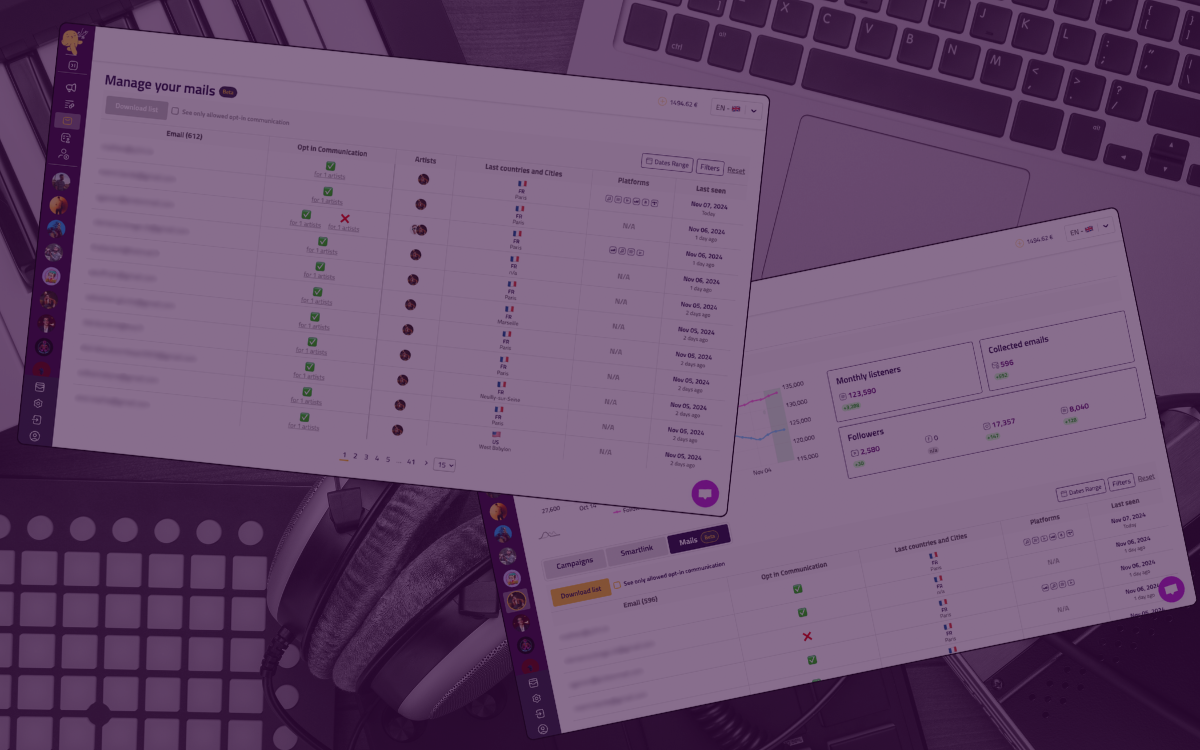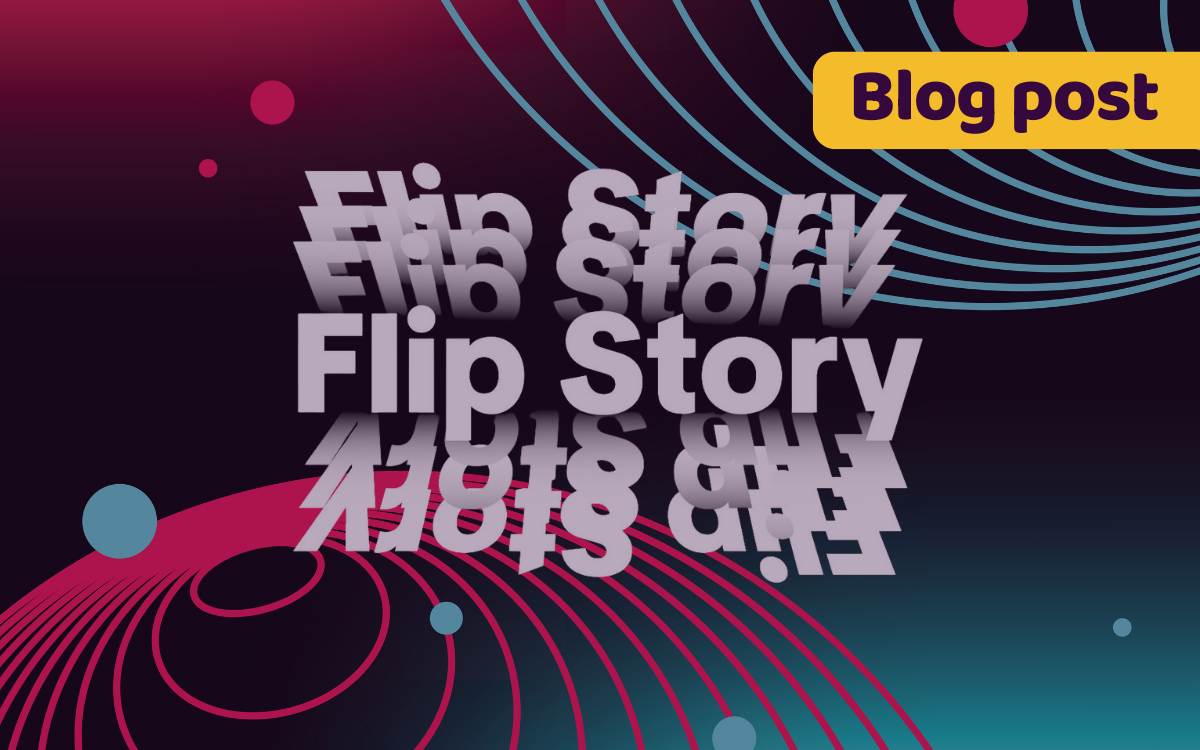With over 76 million monthly active users and a catalog of 320 million tracks from 40 million artists, SoundCloud stands out as a key player for independent musicians. But against giants like Spotify, which counts almost 602 million active users worldwide, the gap remains significant. While Spotify dominates with a consolidated streaming model, SoundCloud is struggling to navigate an ever-changing music industry.
Today, the rise of music distribution services, the increasing integration of artificial intelligence in music creation and the transformation of remuneration models pose complex challenges for SoundCloud. These developments are not only redefining artists’ expectations, but also the way platforms need to adapt to remain relevant and competitive.
Let’s explore in this article how SoundCloud has chosen to redesign its model and explore new strategies to become much more than just a streaming service, asserting itself as an essential tool for artists in this ever-changing landscape.
1. SoundCloud: history and current situation
SoundCloud enables millions of artists to publish their creations without intermediaries. Today, the platform gathers a user base of over 140 million registered accounts. Compared with Spotify, the global market leader, this is almost 3 times fewer active users: the Swedish giant currently counts over 602 million active users.
The independent artist community is at the heart of SoundCloud. Unlike other streaming platforms, SoundCloud is aimed at creators who want total control over their content. This DIY (Do It Yourself) positioning makes it a strategic lever for emerging musicians, since anyone can post their audios, offering an alternative to traditional channels.
SoundCloud’s business model is centered on the independent artists who make up its community, and the platform adds value for them through its unique Fan-Powered Royalties (FPR) model. This model enables artists to benefit directly from the support of their fans, by allocating a share of each listener’s subscription and advertising revenues solely to the artists/songs they listen to individually. Organizations like Merlin (which includes distributors such as TuneCore, DistroKid and Symphonic Distribution) actively participate in this program, reinforcing SoundCloud’s appeal to independent professionals.
In 2023, the platform recorded a gross profit of 104 million euros ($109.6 million), up 10.6% on the prior-year figure. By comparison, Spotify posted a gross profit of 3.5 billion euros ($3.67 billion) in the same year. These figures highlight the significant size of the gap between SoundCloud and the top of the streaming platform hierarchy.

Yet, SoundCloud is also facing a major challenge: the platform must continue its efforts to reduce its operating losses, as it was only able to achieve its first profitable year in terms of EBITDA in 2023, 16 years after its creation! This situation underlines the urgent need for SoundCloud to strengthen its profitability in order to compete with the market giants and adapt to changes in the industry.
Eliah Seton, CEO of SoundCloud, stated: “Reaching profitability matters because it reinforces that we are pursuing the right strategy and have taken the necessary steps to turn around the business”.
2. The expansion of music distribution services
The music industry has seen an explosion in digital distribution services, with platforms such as CD Baby, TuneCore and DistroKid. These platforms simplify independent artists’ access to global markets and give them real autonomy. For SoundCloud, this trend represents both an opportunity and competition.
In this context, the key to SoundCloud’s strategy could lie in its ability to integrate tools that increase its value for users, such as direct distribution of tracks on competing platforms (Spotify, Apple Music).
3. The impact of artificial intelligence on music industry
Another market evolution worth noting is the rise of AI. This is reshaping the musical landscape, with innovations ranging from composition to production. According to a study by Sacem, by 2028, the market for generative AI in music is expected to reach over 3 billion dollars, and nearly 35% of creators claim to have used AI for their projects.
By early 2024, SoundCloud had begun actively integrating AI into its tools, collaborating with platforms Fadr, Soundful and Voice-Swap. These technologies make it easier for artists to create and remix their tracks. In addition, SoundCloud has joined the AI For Music initiative to promote the ethical and artistic use of AI, in collaboration with giants such as Universal Music and Songtradr.
Eliah Seton, CEO of SoundCloud, commented: “At SoundCloud, we take pride in being ground zero for musical experimentation. That’s why we’re home to what’s next in music. AI is top of mind for us in this context, and we’re excited about how this technology can be applied to serve and empower artists. These partners, which we’ve selected intentionally, reflect the very best of what the industry has to offer in this arena—tools that open up new creative avenues and make artists’ lives a little bit easier.”
4. SoundCloud’s strategy: adapting to an ever-changing market
To sum up, in response to these challenges, SoundCloud has adopted a proactive strategy, enriching its offer to go from a simple streaming platform to a veritable toolbox for artists. This new offer includes:
Direct song distribution to other DSPs:
SoundCloud now offers artists simultaneous distribution of their tracks to over 60 platforms, including Spotify and Apple Music, immediately after the music has been uploaded. The platform has also integrated algorithmic recommendations to maximize track exposure.
Simplified monetization:
Next Pro artists can activate monetization right at the upload stage, making the process intuitive and accessible. All they have to do is click on “Monetize” during the upload process.
Merchandising solutions:
With the SoundCloud Store beta program, SoundCloud offers solutions for artists to design and sell merch at no upfront cost, strengthening the bond between artists and fans. The process remains simple for artists, and SoundCloud takes charge of the entire production and sale of products.
Strategic partnerships with AI tools:
SoundCloud keeps collaborating with other AI-based creative platforms, demonstrating its commitment to a greater democratization of music creation. These include 6 new creative offers:
- Tuney: enables remixing and the generation of new tracks
- Tuttii: focused on remixing licensed music
- AlBeatz: specialized in beats
- TwoShot: focused on custom samples
- Starmony: supports music creation by fans
- ACE Studio: produces studio-quality AI voices
SoundCloud aims to stay a central pillar of the music industry, especially for independent artists. The transformation of the platform’s offer not only makes it easier for artists to be discovered thanks to distribution on all DSPs, but also supports them in their music creation process. SoundCloud keeps on reinventing itself to meet the challenges of a market in full transformation. However, it remains to be seen whether this ambitious strategy will also contribute to strengthening the company’s long-term profitability…
Subscribe to our newsletter to stay ahead with the latest Music Marketing news 📧




